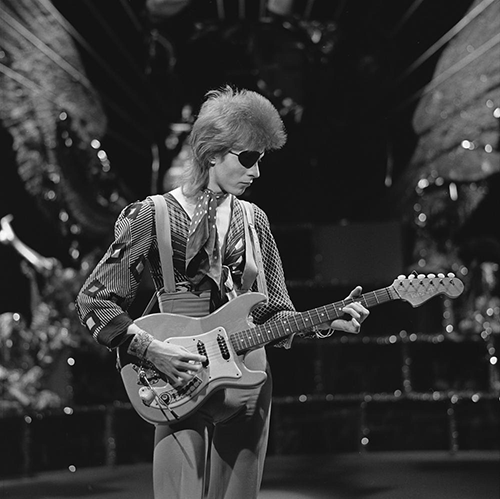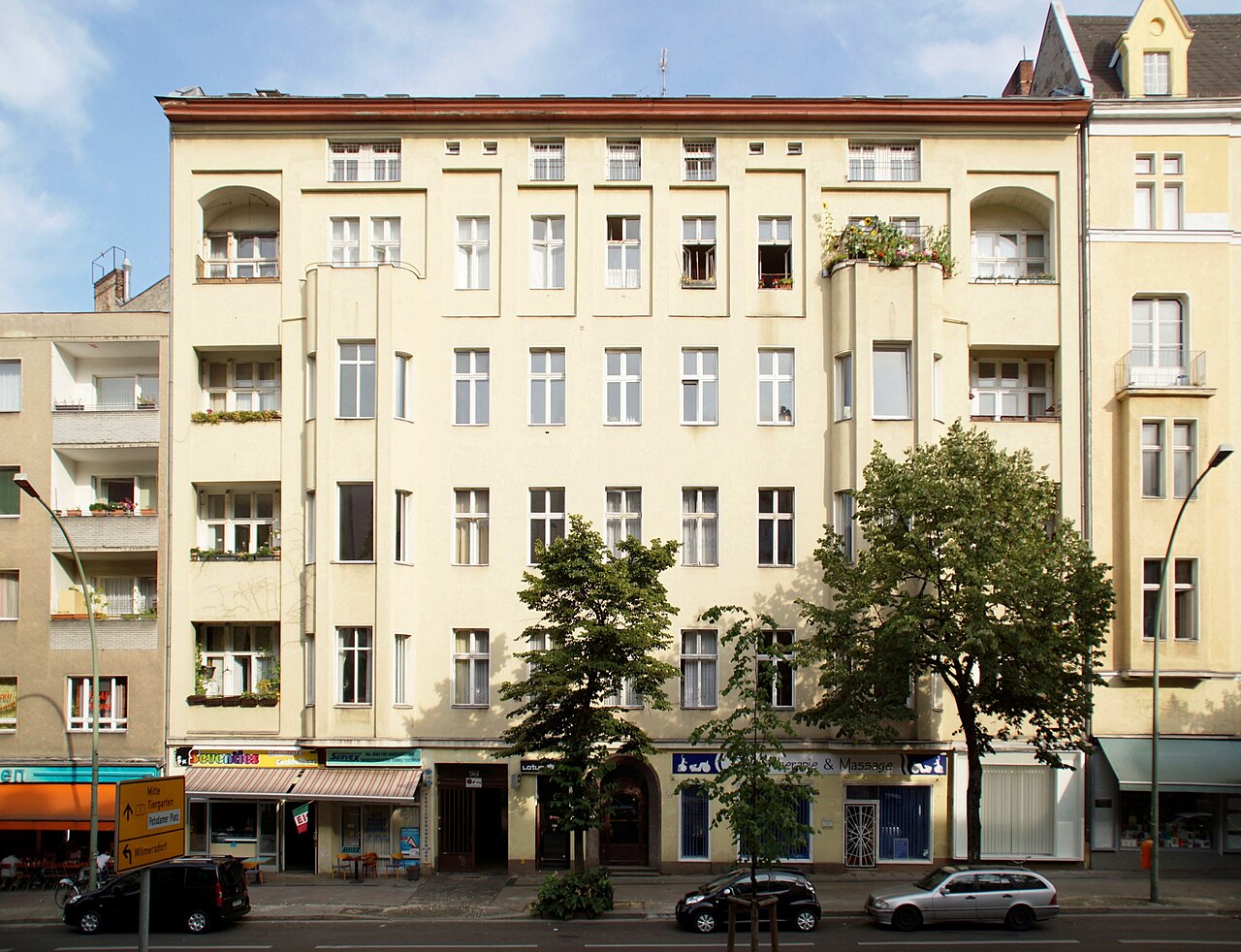David Bowie
David Bowie

David Robert Jones (8 January 1947 – 10 January 2016), known professionally as David Bowie, was an English singer, songwriter, musician, and actor. He is regarded as one of the most influential musicians of the 20th century. Bowie was acclaimed by critics and musicians, particularly for his innovative work during the 1970s. His career was marked by reinvention and visual presentation, and his music and stagecraft had a significant impact on popular music.
Bowie developed an interest in music from an early age. He studied art, music, and design before embarking on a professional career as a musician in 1963. He released a string of unsuccessful singles with local bands and a solo album before achieving his first top-five entry on the UK Singles Chart with "Space Oddity" (1969). After a period of experimentation, he re-emerged in 1972 during the glam rock era with the flamboyant and androgynous alter ego Ziggy Stardust. The character was spearheaded by the success of "Starman" and the album The Rise and Fall of Ziggy Stardust and the Spiders from Mars, which won him widespread popularity.
In 1975, Bowie's style shifted towards a sound he characterized as "plastic soul," initially alienating many of his UK fans but garnering his first major US crossover success with the number-one single "Fame" and the album Young Americans. In 1976, Bowie starred in the cult film The Man Who Fell to Earth and released Station to Station. In 1977, he again changed direction with the electronic-inflected album Low, the first of three collaborations with Brian Eno that came to be known as the Berlin Trilogy. "Heroes" (1977) and Lodger (1979) followed; each album reached the UK top five and received lasting critical praise.
After uneven commercial success in the late 1970s, Bowie had three number-one hits: the 1980 single "Ashes to Ashes," its album Scary Monsters (and Super Creeps), and "Under Pressure" (a 1981 collaboration with Queen). He achieved his greatest commercial success in the 1980s with Let's Dance (1983). Between 1988 and 1992, he fronted the hard rock band Tin Machine before resuming his solo career in 1993. Throughout the 1990s and 2000s, Bowie continued to experiment with musical styles, including industrial and jungle. He also continued acting; his roles included Major Jack Celliers in Merry Christmas, Mr. Lawrence (1983), Jareth the Goblin King in Labyrinth (1986), Phillip Jeffries in Twin Peaks: Fire Walk with Me (1992), Andy Warhol in the biopic Basquiat (1996), and Nikola Tesla in The Prestige (2006), among other film and television appearances and cameos.
He stopped touring after 2004, and his last live performance was at a charity event in 2006. Bowie returned from a decade-long recording hiatus in 2013 with The Next Day and remained musically active until his death from liver cancer in 2016. He died two days after both his 69th birthday and the release of his final album, Blackstar.
During his lifetime, his record sales, estimated at over 100 million records worldwide, made him one of the best-selling musicians of all time. Often dubbed the "chameleon of rock" due to his constant musical reinventions, he was inducted into the Rock and Roll Hall of Fame in 1996. Rolling Stone ranked him among the greatest artists in history. As of 2022, Bowie was the best-selling vinyl artist of the 21st century.
David Robert Jones was born on 8 January 1947 in Brixton, London. His mother, Margaret Mary "Peggy" (née Burns), was born at Shorncliffe Army Camp near Cheriton, Kent. Her paternal grandparents were Irish immigrants who had settled in Manchester. She worked as a waitress at a cinema in Royal Tunbridge Wells. His father, Haywood Stenton "John" Jones, was from Doncaster, Yorkshire, and worked as a promotions officer for the children's charity Barnardo's. The family lived at 40 Stansfield Road, on the boundary between Brixton and Stockwell in the south London borough of Lambeth.
Bowie attended Stockwell Infants School until he was six, acquiring a reputation as a gifted and single-minded child—and a defiant brawler.
From 1953, Bowie moved with his family to Bickley and then Bromley Common before settling in Sundridge Park in 1955, where he attended Burnt Ash Junior School. His voice was considered "adequate" by the school choir, and he demonstrated above-average abilities in playing the recorder. At the age of nine, his dancing during the newly introduced music and movement classes was strikingly imaginative; teachers called his interpretations "vividly artistic," and his poise "astonishing" for a child. The same year, his interest in music was further stimulated when his father brought home a collection of American 45s by artists including the Teenagers, the Platters, Fats Domino, Elvis Presley, and Little Richard. Upon listening to Little Richard's song "Tutti Frutti," Bowie later said that he had "heard God."
Bowie was first impressed with Presley when he saw his cousin Kristina dance to "Hound Dog" soon after its release in 1956. According to Kristina, she and David "danced like possessed elves" to records of various artists. By the end of the following year, Bowie had taken up the ukulele and tea-chest bass, begun to participate in skiffle sessions with friends, and had started to play the piano. Meanwhile, his stage presentation of numbers by both Presley and Chuck Berry—complete with gyrations in tribute to the original artists—to his local Wolf Cub group was described as "mesmerizing ... like someone from another planet." Having encouraged his son to follow his dreams of being an entertainer since he was a toddler, in the late 1950s David's father took him to meet singers and other performers preparing for the Royal Variety Performance, introducing him to Alma Cogan and Tommy Steele. After taking his eleven-plus exam at the conclusion of his Burnt Ash Junior education, Bowie went to Bromley Technical High School. It was an unusual technical school, as biographer Christopher Sandford wrote:
Despite its status it was, by the time David arrived in 1958, as rich in arcane ritual as any [English] public school. There were houses named after eighteenth-century statesmen like Pitt and Wilberforce. There was a uniform and an elaborate system of rewards and punishments. There was also an accent on languages, science and particularly design, where a collegiate atmosphere flourished under the tutorship of Owen Frampton. In David's account, Frampton led through force of personality, not intellect; his colleagues at Bromley Tech were famous for neither and yielded the school's most gifted pupils to the arts, a regime so liberal that Frampton actively encouraged his own son, Peter, to pursue a musical career with David, a partnership briefly intact thirty years later.

Bowie's maternal half-brother, Terry Burns, was a substantial influence on his early life. Burns, who was 10 years older than Bowie, had schizophrenia and seizures, and lived alternately at home and in psychiatric wards. While living with Bowie, he introduced the younger man to many of his lifelong influences, such as modern jazz, Buddhism, Beat poetry, and the occult. In addition to Burns, a significant proportion of Bowie's extended family members had schizophrenia spectrum disorders, including an aunt who was institutionalized and another who underwent a lobotomy; this has been labeled as an influence on his early work.
References
- "How to say: Bowie". BBC. 8 January 2008. Archived from the original on 8 March 2021. Retrieved 16 September 2010.
- ^ "David Bowie". Biography.com (FYI/A&E Networks). Archived from the original on 14 March 2021. Retrieved 20 June 2022.^ Jump up to:
- a b "Bowie mourns mother's death". BBC News. 2 April 2001. Archived from the original on 11 January 2016. Retrieved 9 February 2022.
- ^ Gillman & Gillman 1987, p. 17: "[Peggy] was born in the hospital at Shorncliffe Camp [near Folkestone, Kent] on October 2nd, 1913.".
- ^ Gillman & Gillman 1987, p. 15: "[Her father] Jimmy Burns's parents were poor Irish immigrants who had settled in Manchester"; p. 16: "[Jimmy] had known [her mother] in Manchester. Her name was Margaret Heaton".
- ^ Gillman & Gillman 1987, p. 44: "At the end of the war, Peggy Burns was working as a waitress at the Ritz cinema in Tunbridge Wells".
- ^ Gillman & Gillman 1987, p. 44 "John Jones was born in the grimy Yorkshire town of Doncaster in 1912.".
- ^ Sandford 1997, pp. 9–16.












































